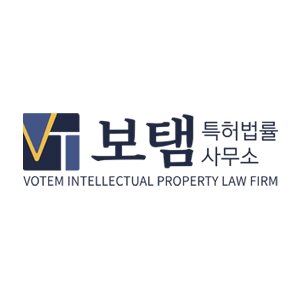Best Licensing Lawyers in South Korea
Share your needs with us, get contacted by law firms.
Free. Takes 2 min.
Or refine your search by selecting a city:
List of the best lawyers in South Korea
About Licensing Law in South Korea
Licensing law in South Korea is an essential area of legal practice that governs the authorization of various activities, products, services, and intellectual property. It ensures that entities comply with local regulations and standards while maximizing their commercial potential within the legal framework. This field covers a wide range of sectors from business licenses, intellectual property rights, and product certifications to franchise operations and more. South Korea's licensing system is particularly significant as it provides a structured mechanism to manage the rights and obligations associated with technological advancements, cultural productions, and trade.
Why You May Need a Lawyer
Engaging with licensing law can be complex, and there are several situations where you might require legal assistance. These include:
- Starting a new business and needing to secure the necessary licenses and permits.
- Dealing with intellectual property rights such as patents, trademarks, or copyrights.
- Entering a franchising agreement, where detailed understanding and negotiation of the terms are crucial.
- Negotiating, drafting, or reviewing licensing agreements for business operations or technologies.
- Facing compliance issues or disputes related to existing licenses.
- Expanding your business internationally and requiring knowledge of cross-border licensing laws.
Each of these situations can benefit from the specialized knowledge and guidance of a licensing lawyer to navigate the legal requirements and protect your interests.
Local Laws Overview
South Korea's licensing laws are comprehensive, covering a spectrum of sectors. Key aspects include:
- Business Licensing: To operate legally, businesses must obtain the appropriate licenses, which vary by industry and location. This includes registration with the appropriate government departments.
- Intellectual Property Licensing: The Korean Intellectual Property Office (KIPO) governs intellectual property laws, ensuring protection through patent, trademark, and copyright laws.
- Franchising Regulations: Franchises must comply with the Fair Transactions in Franchise Business Act, which protects franchisees’ rights and dictates disclosure requirements.
- Product Regulations: Products that are imported or manufactured domestically must meet local safety and environmental standards set by various government bodies.
- Technology Transfer: With advances in technology, licensing agreements related to technology have become crucial, with regulations that aim to facilitate technology transfer legally and ethically.
Frequently Asked Questions
1. What types of licenses are required to start a business in South Korea?
Generally, you need a business registration certificate, sector-specific licenses, and potentially other permits depending on the nature and location of your business.
2. How are intellectual property rights protected in South Korea?
KIPO is responsible for granting and enforcing intellectual property rights such as patents, trademarks, and copyrights, offering legal remedies for infringement.
3. What steps are involved in applying for a business license?
The process typically involves registering your business entity with the local government, obtaining any industry-specific permits, and adhering to regulatory compliance.
4. Are there specific laws governing international licensing agreements?
Yes, international licensing agreements must comply with domestic laws and consider factors like taxation, jurisdiction, and dispute resolution.
5. What should be included in a licensing agreement?
A licensing agreement should outline the scope of use, duration, financial terms, rights and obligations of parties, and dispute resolution methods.
6. How can I ensure my franchise business complies with local laws?
Compliance involves following the Fair Transactions in Franchise Business Act, which covers disclosure requirements, franchisee rights, and operational constraints.
7. Are there penalties for operating without the proper licenses?
Yes, operating without the necessary licenses can result in fines, legal action, and being forced to cease operations until compliance is achieved.
8. How do licensing laws impact foreign companies expanding into South Korea?
Foreign companies must adhere to Korean licensing laws, which might involve obtaining additional permits and ensuring compliance with local regulations.
9. Can licensing agreements be terminated early?
Yes, but this depends on the terms set out in the agreement regarding termination clauses. Parties must negotiate these terms carefully.
10. What is technology transfer, and how is it regulated?
Technology transfer involves moving skills, knowledge, methods, or technology across entities, regulated to ensure compliance with intellectual property and commercial laws.
Additional Resources
Consider these resources for more insights into licensing in South Korea:
- Korean Intellectual Property Office (KIPO): Offers information on intellectual property rights and applications.
- Korea Trade-Investment Promotion Agency (KOTRA): Provides support for foreign businesses entering the Korean market.
- Ministry of Trade, Industry, and Energy (MOTIE): Oversees trade policies and industry regulations.
- Korea's Small and Medium Business Administration (SMBA): Sources of support for small businesses regarding regulatory compliance.
Next Steps
If you need legal assistance in licensing, consider the following steps:
- Consult a Lawyer: Seek out a lawyer specializing in licensing who can guide you through complex laws and offer personalized advice.
- Gather Detailed Information: Prepare comprehensive documentation and background information related to your licensing needs.
- Develop a Legal Strategy: Work with your legal team to create an approach tailored to your specific situation, ensuring full compliance with local regulations.
- Stay Informed: Laws and regulations can change, so remain engaged with relevant updates in the licensing space.
By taking these steps, you can better navigate the licensing landscape in South Korea and ensure your operations are legally sound.
Lawzana helps you find the best lawyers and law firms in South Korea through a curated and pre-screened list of qualified legal professionals. Our platform offers rankings and detailed profiles of attorneys and law firms, allowing you to compare based on practice areas, including Licensing, experience, and client feedback.
Each profile includes a description of the firm's areas of practice, client reviews, team members and partners, year of establishment, spoken languages, office locations, contact information, social media presence, and any published articles or resources. Most firms on our platform speak English and are experienced in both local and international legal matters.
Get a quote from top-rated law firms in South Korea — quickly, securely, and without unnecessary hassle.
Disclaimer:
The information provided on this page is for general informational purposes only and does not constitute legal advice. While we strive to ensure the accuracy and relevance of the content, legal information may change over time, and interpretations of the law can vary. You should always consult with a qualified legal professional for advice specific to your situation.
We disclaim all liability for actions taken or not taken based on the content of this page. If you believe any information is incorrect or outdated, please contact us, and we will review and update it where appropriate.
Browse licensing law firms by city in South Korea
Refine your search by selecting a city.














